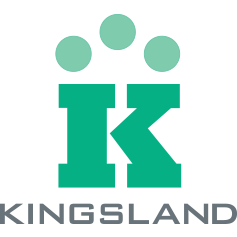Yield-hungry investors snap up S$ bonds
Source: AsiaOne, MONDAY, AUG 04 2014
Singapore's millionaires are bankrolling makers of tyre rubber and frozen salmon samosas in their quest for higher returns as smaller firms tap its bond markets, driving yields to a 13-year high.
Companies including locally listed seafood supplier Pacific Andes Resources Development and Halcyon Agri, each valued at less than $600 million, sold Singapore dollar-denominated bonds for the first time last month with coupons rates exceeding 5 per cent.
Rates on corporate notes have averaged 4.3 per cent since Dec 31- 1 percentage point higher than for all of last year, according to data compiled by Bloomberg.
Junk yields in Asia averaged 7.3 per cent, around 57 basis points higher than those seen last year, a JPMorgan Chase index shows.
Bank deposits in Asia's largest wealth management hub give less than 1 per cent, so yields seem better in debt capital markets.
Private banks bought at least 90 per cent of the two companies' $325 million of notes, said people familiar with the matter.
DBS Group Holdings expects more issues from small to medium-sized enterprises.
"There has been increased activity in smaller, high-yield transactions, with a good allocation to private banks," Mr Vishal Goenka, who heads local-currency credit trading for Asia at Deutsche Bank, said on Wednesday. "Still, liquidity in the secondary market on these issues has been minimal, and pricing on credit metrics looks stretched at times."
About 40 per cent of this year's Singdollar bond issuance offered coupons of at least 4 per cent, or spreads of more than 280 basis points over government debt, data shows. That compares with just over a quarter for all of last year, and 2012.
Since Dec 31, less than 10 per cent of bonds in Thailand and no Malaysia notes have offered premiums that high.
Demand for yields is making it easier for local small caps to raise debt in public markets, with some selling bonds equivalent to 10 times their annual profits.
Perennial Somerset investors, whose parent owns a tower near Orchard Road raised $229 million in four-year debt in March via a 10 percent note- the highest rate yet from a Singapore-based issuer of local-currency debentures.
"The main thing we've seen lately has been increased interest in Asian high-dividend funds hedged in Singapore dollars," said chief executive Mark Paine at Meyado Private Wealth Management.
Halcyon Agri, which makes rubber for tyre manufacturers, last month sold a $125 million bond maturing in five years with a 6.5 per cent coupon. The firm posted a net profit of $9.1 million last year and will spend about $6.5 million a year serving the debt.
Private banks bought 90 per cent of the notes, a person familiar with the matter said yesterday, asking not to be identified because the details are private.
"We were overwhelmed by the interest," Halcyon Agri CEO Robert Meyer said, noting the deal was 16 times oversubscribed. "We're thinking of tapping the market again."
Amtek Engineering, with a market cap of $341 million, raised $200 million selling notes in March. The five-year bonds carry a 6.9 per cent rate.
Aspial Corp, which owns a chain of pawnbrokers and jewellery stores in Singapore, raised $210 million in three sales this year- more than triple its profit last year and a quarter of its market value.
Private banks bought 99 per cent of the first sale in January, an $80 million note paying 4.5 per cent, said a person familiar with the matter.
"So far, companies have not been prone to overgear. Many have in fact shown discipline and been careful," said DBS fixed-income head Clifford Lee.
Singdollar bond sales have come to $14.9 billion this year, against $11.9 billion for the same period last year, data compiled by Bloomberg shows. In contrast, baht-denominated sales in Thailand since Dec 31 have amounted to 380.7 billion baht ($14.8 billion), while ASEAN domestic issues have totalled $38.9 billion.
This article was first published on Aug 2, 2014.

